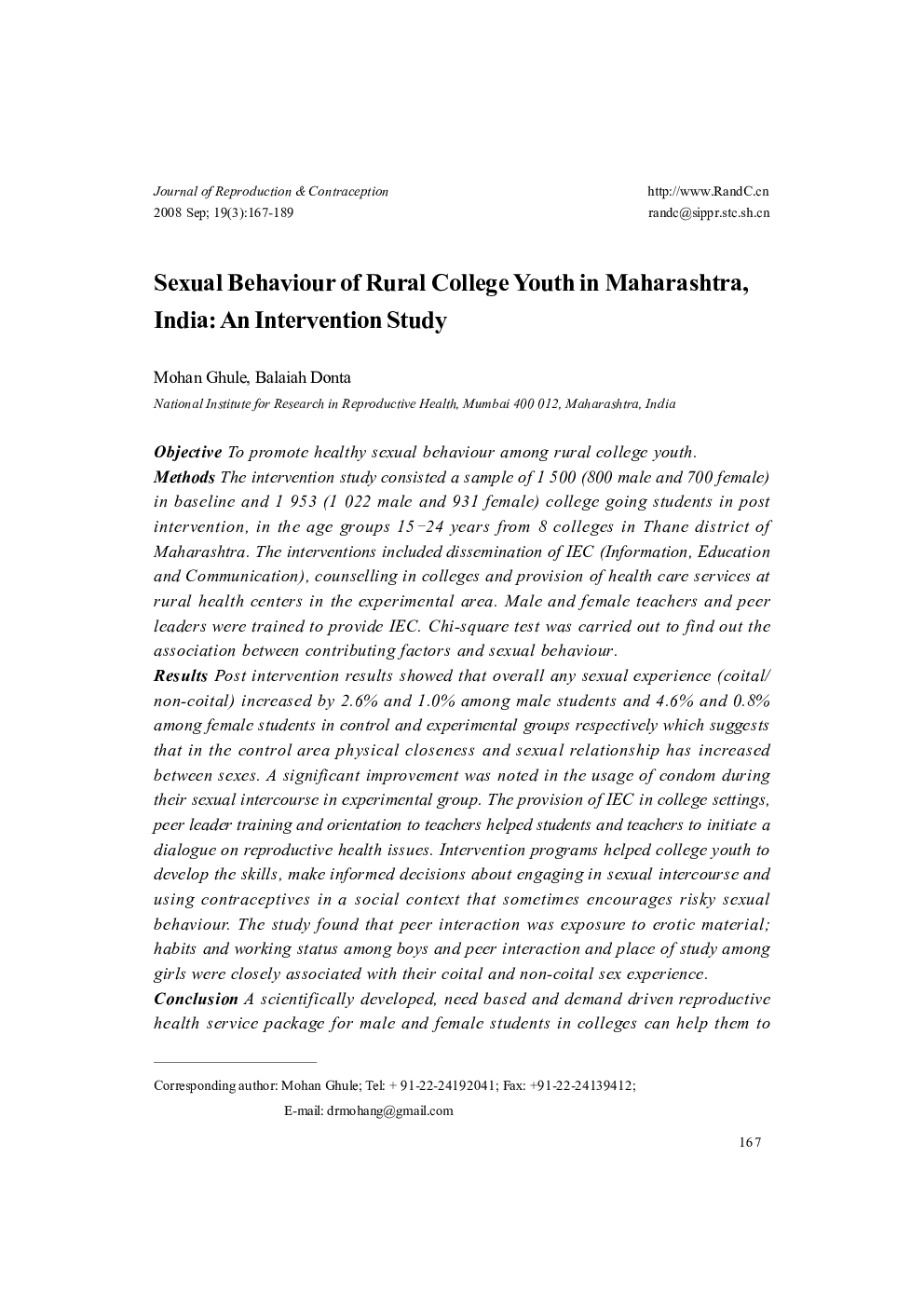| Article ID | Journal | Published Year | Pages | File Type |
|---|---|---|---|---|
| 3961023 | Journal of Reproduction and Contraception | 2008 | 23 Pages |
ObjectiveTo promote healthy sexual behaviour among rural college youth.MethodsThe intervention study consisted a sample of 1 500 (800 male and 700 female) in baseline and 1 953 (1 022 male and 931 female) college going students in post intervention, in the age groups 15–24 years from 8 colleges in Thane district of Maharashtra. The interventions included dissemination of IEC (Information, Education and Communication), counselling in colleges and provision of health care services at rural health centers in the experimental area. Male and female teachers and peer leaders were trained to provide IEC. Chi-square test was carried out to find out the association between contributing factors and sexual behaviour.ResultsPost intervention results showed that overall any sexual experience (coital/ non-coital) increased by 2.6% and 1.0% among male students and 4.6% and 0.8% among female students in control and experimental groups respectively which suggests that in the control area physical closeness and sexual relationship has increased between sexes. A significant improvement was noted in the usage of condom during their sexual intercourse in experimental group. The provision of IEC in college settings, peer leader training and orientation to teachers helped students and teachers to initiate a dialogue on reproductive health issues. Intervention programs helped college youth to develop the skills, make informed decisions about engaging in sexual intercourse and using contraceptives in a social context that sometimes encourages risky sexual behaviour. The study found that peer interaction was exposure to erotic material; habits and working status among boys and peer interaction and place of study among girls were closely associated with their coital and non-coital sex experience.ConclusionA scientifically developed, need based and demand driven reproductive health service package for male and female students in colleges can help them to develop their knowledge, skills and attitudes for critical thinking and responsible decision making and for achieving healthy sexual life. Therefore, programs aimed at promotion of safer sex practice should be promoted at such vulnerable group.
